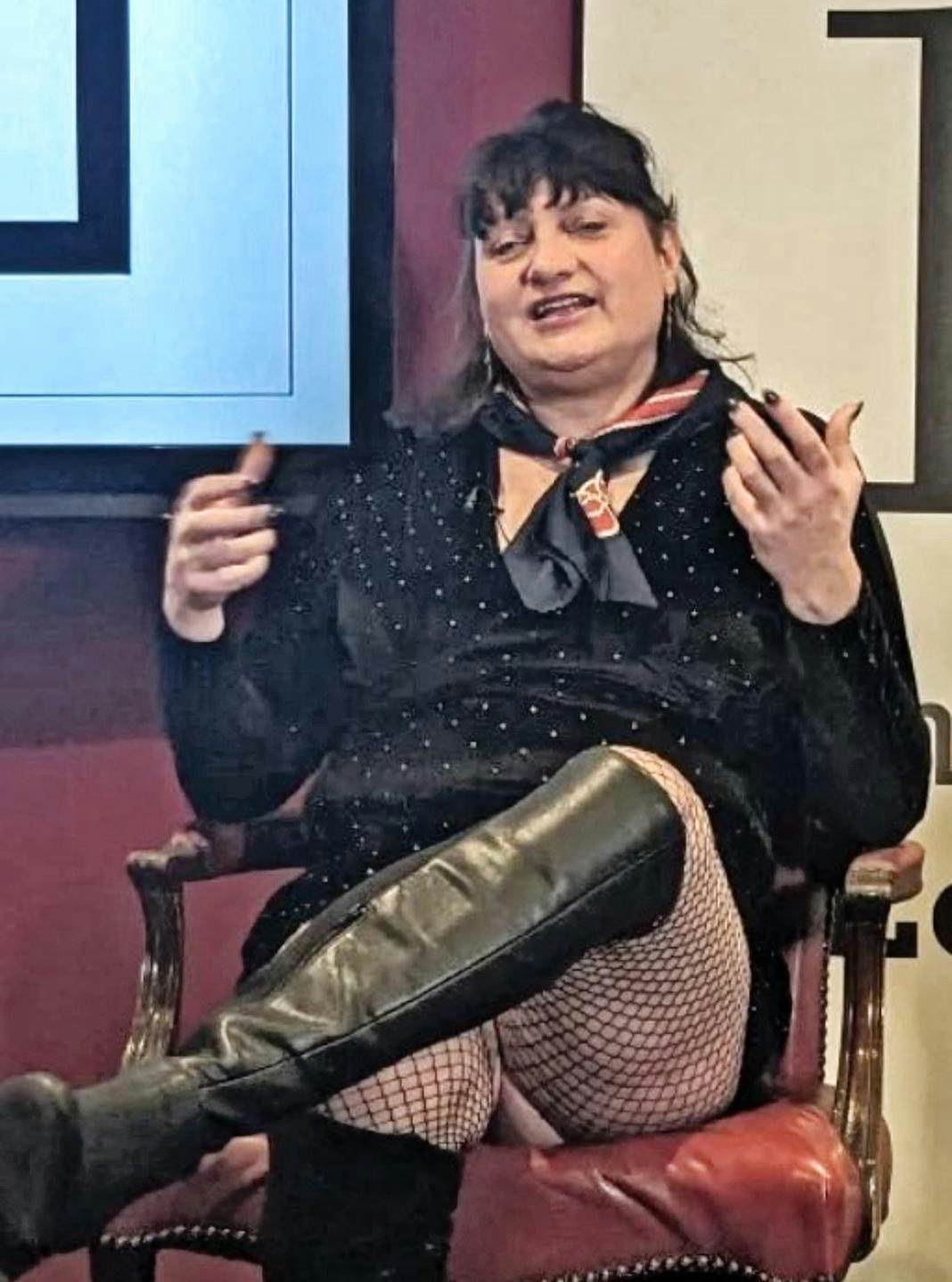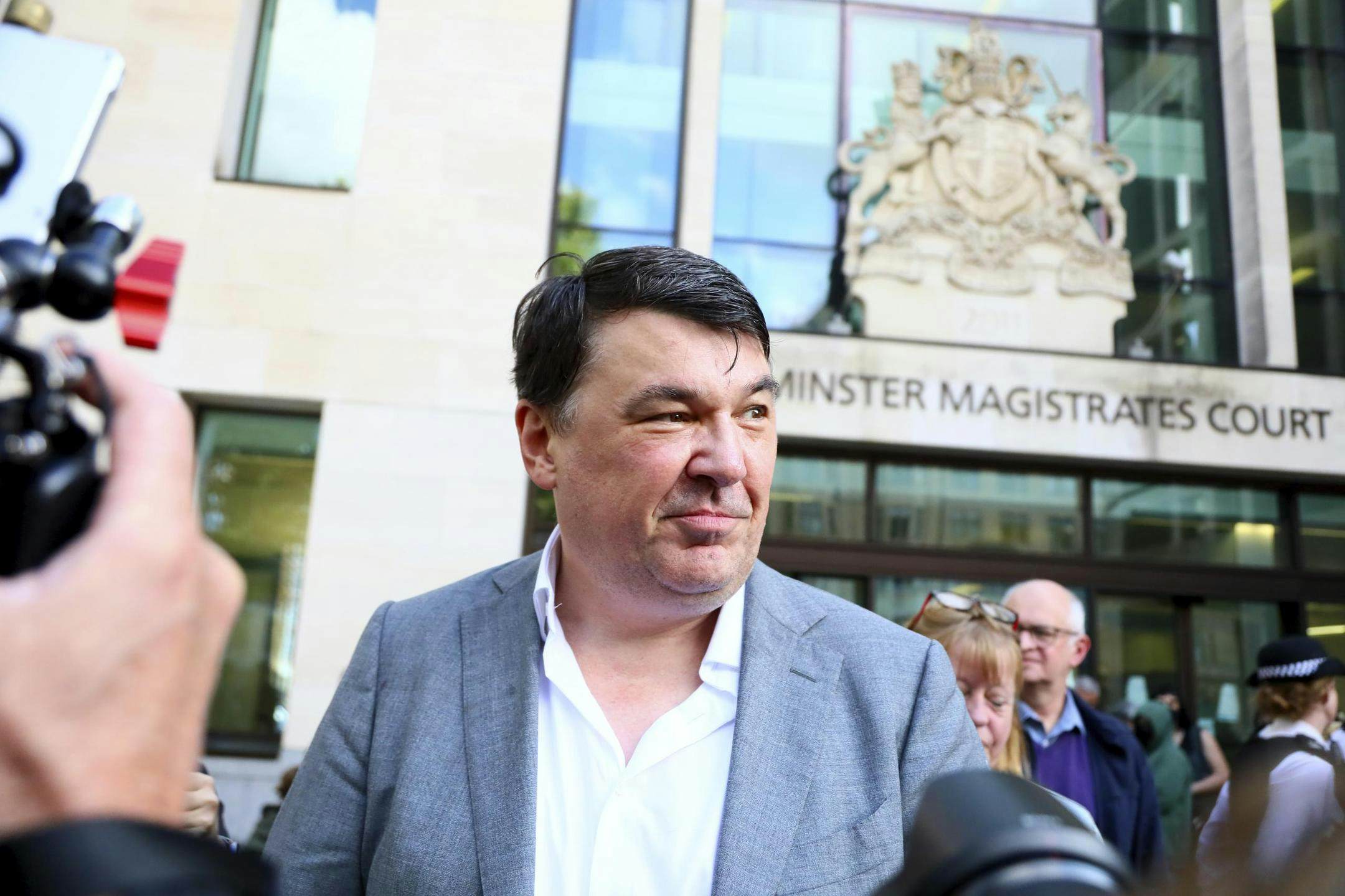This article is taken from the October 2025 issue of The Critic. To get the full magazine why not subscribe? Get five issues for just £25.
The Irish comedian, Graham Linehan, was arrested on the tarmac at Heathrow on 1 September for three tweets criticising trans activism. The outrage at police overreach was almost universal, the blame largely placed on laws that crimp freedom of expression and tie police officers’ hands.
But that’s not the real story. The arrest was the inevitable consequence of a shadow crime-recording system that has been created over the past quarter-century with almost nobody noticing, with the accuser’s word believed without question provided they belong to a “protected group”. Linehan is just the highest-profile victim. I’m another.

My story started two years ago, though I didn’t know it at the time. I’d been invited to speak at an event about how trans ideology threatens liberal values and agreed without realising who else would be on the panel, by which point it was too late to pull out. Peter Tatchell, a superannuated gay rights campaigner and latterly trans rights (read men’s rights) activist, was bad enough. Worse was Freda Wallace, a trans-identifying man I had long ago blocked on Twitter because of his trollish posts harassing women and bragging about visits to fetish clubs.
He’s a man who posted pictures of himself getting a blow job in what looks like a BDSM dungeon, on one occasion tagging a disabled woman who campaigns for women like her to be guaranteed same-sex care, on another tagging Linehan and suggesting that he was the man in front of Wallace on his knees.
It was a miserable evening. Wallace drank throughout, insulted me and insulted the audience. He bragged of having sex with lesbians as a “sperm-producing female” and fucking men with his “female penis in fetish clubs”. He claimed the husbands of women who campaign for single-sex spaces might support their wives in public, but “in private they fuck me”.
I left quickly afterwards, wrote about it for my newsletter, tweeted a few times and forgot about it. A year later friends alerted me that another trans-identifying man, Lynsay Watson, was claiming on social media to have reported me to the police for sexually harassing a trans woman. I racked my brains but could come up with nothing.

Watson, a former police officer, had been sacked for gross misconduct in 2023 after a campaign of online harassment against a friend of mine, Harry Miller — more about that anon. The police would soon be at my doorstep, Watson gloated. If I wasn’t prosecuted, he would drag the police to judicial review, and if that didn’t work he’d take a private prosecution.
The police didn’t come knocking, but the posts continued. In May, after he speculated that if people like him weren’t so “inherently peaceful”, people like me would have “met a grim ending a long time ago”, I reported him for criminal harassment.
From that point this story takes two very different turns, with Watson’s complaint accepted by the police and mine ignored.
My report generated a brief phone call saying it would be transferred to Watson’s home force, Greater Manchester Police. A text with a new crime number arrived from GMP a month later, and another text with another crime number after another month from Lincolnshire Police saying GMP thought he had moved to their patch. And then nothing until September, when I inquired politely — only to be told Lincolnshire had sent it back to GMP. And that, four months later, is where matters stand.
Meanwhile, unbeknownst to me, Watson had been busy. He had indeed reported me, but my home force had declined to prosecute. I only found out because Watson had applied for judicial review. As an interested party, I received a copy of their request for his application to be dismissed. And there, in black and white, was what happens when a trans-identifying man, granted a special status under “hate crime” laws, makes an allegation, no matter how ridiculous and unsupported, about a woman who campaigns for women’s rights.
My “crime”? Four tweets about Wallace at that event, reported by Watson because Wallace, the delicate flower, was “greatly upset”. In them I called Wallace a man, he/him and a fetishist — all true. I also called him “Fred”. And I cleared up online speculation about the unsightly lump of flesh hanging out of ripped fishnets under his miniskirt, which looked like an escaped testicle but was in fact bulging thigh fat.
When the police called him, Watson rounded off this rap sheet by claiming — on zero evidence, because it’s invented — that I had encouraged my social media followers to make abusive phone calls to Wallace and his workplace.
Next, I read about the “investigation”. An officer quickly decided my remarks were “unpleasant” (please; you try sitting through 90 minutes alongside a fat bloke in a mini and ripped fishnets ranting about his female penis and coming damn close to indecent exposure), but that no crime had been committed. Then a reviewing officer instructed him to reopen it and suggested recording a non-crime hate incident. The first officer duly reopened, reconsidered, concluded that it would be impossible to establish whether I had actually made those phone calls or encouraged others to do so, and closed it again.
Hmm, I thought, a non-crime hate incident. I wonder did they record it, and does it name me? So I made a subject access request, and to my astonishment discovered that they had recorded an actual crime — criminal harassment — flagged with the hate crime aggravator “transgender”. It was coded “outcome 15”, police jargon for when a crime has been committed, the suspect has been identified and the victim supports prosecution, but “evidential difficulties” make it impossible to investigate.
To borrow an adjective from Fred — what fucking evidential difficulties? The police know my address! They know my phone number, too: I gave it to them when I reported Watson! But without even getting in touch with me, they recorded me as having done everything Watson said.

I’m not the only person Watson has managed to get recorded as having committed a crime. He was instrumental in the charging decision that led to Linehan flying back from America for trial, which related to yet another trans-identifying man who wandered around a conference last autumn taking close-ups of people in the audience; Linehan knocked his phone out of his hand. Watson is also thought to have reported the tweets that got Linehan arrested in Heathrow.
Amongst the other people I know who’ve been reported by Watson are another journalist, a criminal barrister and a retired senior police officer with an unblemished record. One “crime” — referring to a murdered trans-identifying boy as a boy — was immediately dismissed by police. But Watson was granted permission to take the decision of not charging to judicial review, which failed — a ruling Watson is still appealing more than two years after the initial report.
And then there’s Harry Miller. After Watson was sacked and barred from ever working for any police force again, Miller tried to get him prosecuted for stalking. But the police dragged their feet on charging, and in the end the CPS refused to prosecute him for anything.
As I was writing this, Miller messaged me. Watson had managed to get him, too, recorded as having committed a crime, he said — and not just any old crime, but stalking. The police had sought to interview him about an offence against Watson last year, he told me, but then said they had closed the investigation. He only found out they had recorded his name against a crime when he made a subject access request.
And what had Miller done that constituted “stalking”? Write an innocuous tweet the police officer misread, and an online article about Watson entitled “My Police Stalker” for The Critic.
How did we get here, and how can we get back out? The Met’s boss, Sir Mark Rowley, whose officers arrested Linehan at Heathrow, blames laws that mean when an incident is reported by someone who falls under what is variously known as a “protected group” or “monitored strand”, officers have “no choice but to record such incidents”. Non-crime hate incidents should be abolished, he says, and officers given wider latitude to apply “common sense”. That barely begins to grasp the scale of what’s needed.
The origins of this mess lie in the Macpherson Report on policing in the wake of the murder of Stephen Lawrence, published in 1999, which recommended that police should record racial incidents that fell short of crime. Over time four more monitored strands — religion, disability, sexual orientation and trans identity — were added to race, with some also granted special status in sentencing for crime via “hate crime aggravators”.
The recording of non-crime hate incidents became standardised across the country in 2014, despite no evidence it would have the desired effect, namely to enable police to spot patterns and prevent actual crimes. Now, a decade later, despite attempts to tighten up definitions, if a person from a protected group claims to have suffered a hate incident it is highly likely to be recorded as one.
The definition of “hateful” merely requires hostility or prejudice, which aren’t strictly defined, but Home Office guidance says they can be as minor as “unfriendliness” or “dislike”. The person making the report doesn’t have to have anything to do with the incident, and the police don’t have to check that it actually happened.
This is bad enough for the other protected characteristics, but for transgender identity it’s disastrous. All it takes to fit the criteria is to tell the police that someone has referred to a trans-identifying person as a member of their sex and say that this demonstrates “hostility” and “prejudice”.
Officers are expected to use their “common sense” — an expression that appears 13 times in the Home Office guidance. But the incentives all point the other way. In front of them is a complainant who may be threatening dire consequences if he doesn’t get what he wants, as seems to be Watson’s habit. Referral to professional standards! The Independent Office for Police Conduct! Judicial review! Who cares that somewhere out there is someone who will probably never find out they have been accused of anything?
The personal details of the subject of the report — which may appear in a DBS check if they apply for certain jobs — are supposed to be recorded only if there’s a “real risk” of “significant harm” or of a future crime being committed. But that’s easy for trans complainants to weaponise, too.
Trans lobby groups such as Stonewall have partnered with almost every force in the country and despite not being the law, gender self-identification is firmly embedded in police practice. Officers have been trained that calling a man a man, if he says he’s a woman, is “anti-transgender hate”. When the culprit is someone like me who believes that to the contrary, it’s essential in order to protect women’s rights, claims of “significant harm” are believed and repeat offences are not guaranteed.
The reason Watson was taken seriously and I wasn’t is because he insists men who say they’re women are women and I say the truth, which is that they’re not. The disparity is by design: a feature of the law, not a bug.
This can’t be fixed by abolishing non-crime hate incidents and applying “common sense”. It requires radical change in the culture of policing. No more partnerships with lobby groups, no more flags and badges, no more marking Pride Month, Transgender Day of Remembrance and the rest of the identitarian calendar. On trans issues it will take a deradicalisation programme, with officers retrained to understand that self-ID is not the law and factual statements about the two sexes aren’t hateful.
More fundamentally, “protected groups” have got to go. They’re unnecessary, and there’s no evidence they’re effective. There’s no need for them, either: offences against women and children are policed not by giving them special group status but by creating dedicated strategies and specialist teams.
Above all, creating special categories of people who can instruct the police to credulously record their claims about others offends against two fundamental principles: that we are all innocent until proven guilty, and equal before the law.












